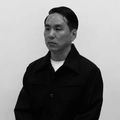ACTIF strives to ensure fabric is fully produced in Africa
According to the World Bank statistics, over the last 10 years, Africa has experienced an increase in export of more than two hundred percent, and an increase in import of two hundred and fifty percent from 2001 to 2011. This has sparked the interest and attention of the west to rethink their position in terms of trade policies towards Africa. For instance, as detailed in Senator Coons’ Embracing Africa’s Economic Potential, March 2013, the Obama administration has recognized the need to accelerate and deepen economic engagement in Sub-Saharan Africa.
Some of the policies in the June 2012 policy document (US Strategy Toward Sub-Saharan Africa) in lure of this objective by the administration include: 1) working with African partners to promote an enabling environment; 2) improving economic governance and transparency while reducing corruption; promoting regional integration; 3) expanding African capacity to access global markets; 4) encouraging US companies to trade with and invest in Africa. In line with the above objective, it is inextricably fundamental for the US to review and authorize the extension of the African Growth and Opportunity Act (AGOA) beyond 2015, since AGOA has been the back bone for economic growth and development for several African countries.
However, while some countries in Africa remain unaware of the opportunities AGOA offers, many African countries still lack the much needed industrial base and competitive productive capacity to fully maximize the opportunities of AGOA. It is against this back drop that ACTIF continually lobbies for the extension of AGOA as it strives to empower local cotton, textile and apparel value chain in the African region in order to increasing its competitive capacity in the global market.
Currently, the demand for fabric in the Sub-Sahara African market far exceeds the present production and supply. Considering the economic cost in sending African cotton to Asia for processing into fabric before shipping it back to Africa to be cut and sewn into garments, ACTIF is playing a key role in cutting this cost by ensuring that the fabric is fully produced adequately in Africa.
This calls for urgency in exploring the opportunities for investing in weaving, spinning dyeing and finishing in the region. In line with this achievement, African governments should be taking initiatives in creating investment-friendly regimes as currently being witnessed in the case of Ethiopia. Also there has been a remarkable increase in support by international organizations such as Business Advocacy Fund that approved its support to ACTIF in carrying out AGOA outreach programs.
Other international organizations, such as Innovations for Poverty Action (IPA) are also actively conducting studies on how to improve various industrial sectors including the Textile and Garment sector across Africa.
Rajeev Arora - ACTIF
































-Ltd..jpg?tr=w-120,h-60,c-at_max,cm-pad_resize,bg-ffffff)





.jpg?tr=w-120,h-60,c-at_max,cm-pad_resize,bg-ffffff)
.jpg?tr=w-120,h-60,c-at_max,cm-pad_resize,bg-ffffff)






